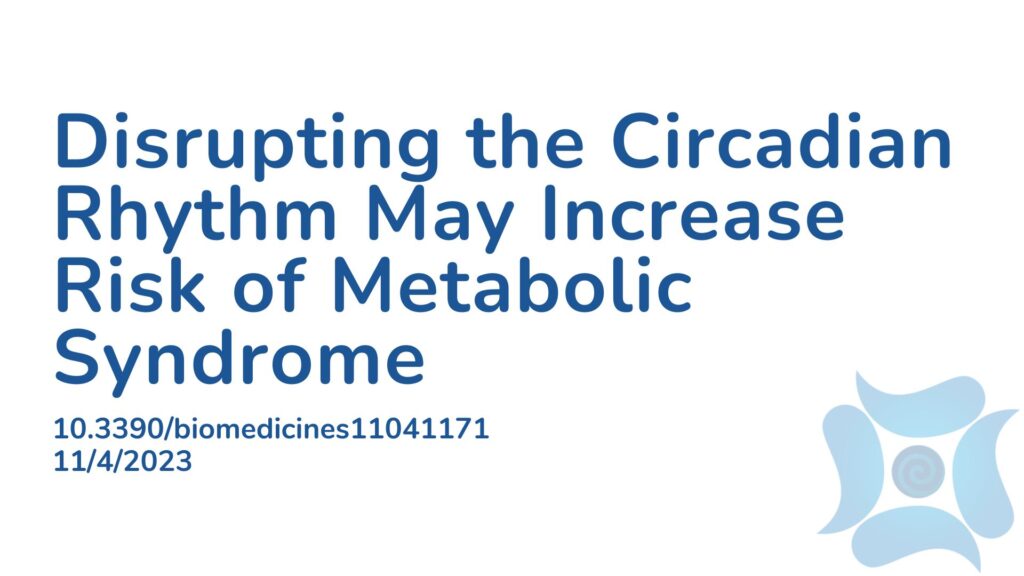Summary:
Humans have a biological clock called the circadian rhythm, a process that programs sleep, food, social interactions and heart health. The circadian rhythm is programmed largely by genes that are also involved in the regulation of hormone production and metabolic pathways. The purpose of this paper was to examine whether a disrupted circadian rhythm can increase risk of chronic illnesses such as metabolic syndrome and finds that due to these shared genes, circadian rhythm disruption can lead to the development of metabolic syndrome. This paper discusses the importance of the circadian rhythm in metabolic processes, why the circadian rhythm is involved in the pathogenesis of metabolic syndrome and how metabolic syndrome and the circadian rhythm disruption can be best managed.
Abstract:
Physiological processes occur in accordance with a rhythm regulated by the endogenous biological clock. This clock is programmed at the molecular level and synchronized with the daily light–dark cycle, as well as activities such as feeding, exercise, and social interactions. It consists of the core clock genes, Circadian Locomotor Output Cycles Protein Kaput (CLOCK) and Brain and Muscle Arnt-Like protein 1 (BMAL1), and their products, the period (PER) and cryptochrome (CRY) proteins, as well as an interlocked feedback loop which includes reverse-strand avian erythroblastic leukemia (ERBA) oncogene receptors (REV-ERBs) and retinoic acid-related orphan receptors (RORs). These genes are involved in the regulation of metabolic pathways and hormone release. Therefore, circadian rhythm disruption leads to development of metabolic syndrome (MetS). MetS refers to a cluster of risk factors (RFs), which are not only associated with the development of cardiovascular (CV) disease (CVD), but also with increased all-cause mortality. In this review, we consider the importance of the circadian rhythm in the regulation of metabolic processes, the significance of circadian misalignment in the pathogenesis of MetS, and the management of MetS in relation to the cellular molecular clock.
Article Publication Date: 11/4/2023
DOI: 10.3390/biomedicines11041171



